Vanuatu Advances Gender-Responsive Climate Resilience: Progress and Commitments Highlighted Ahead of UN Reporting Deadline
March 21, 2024
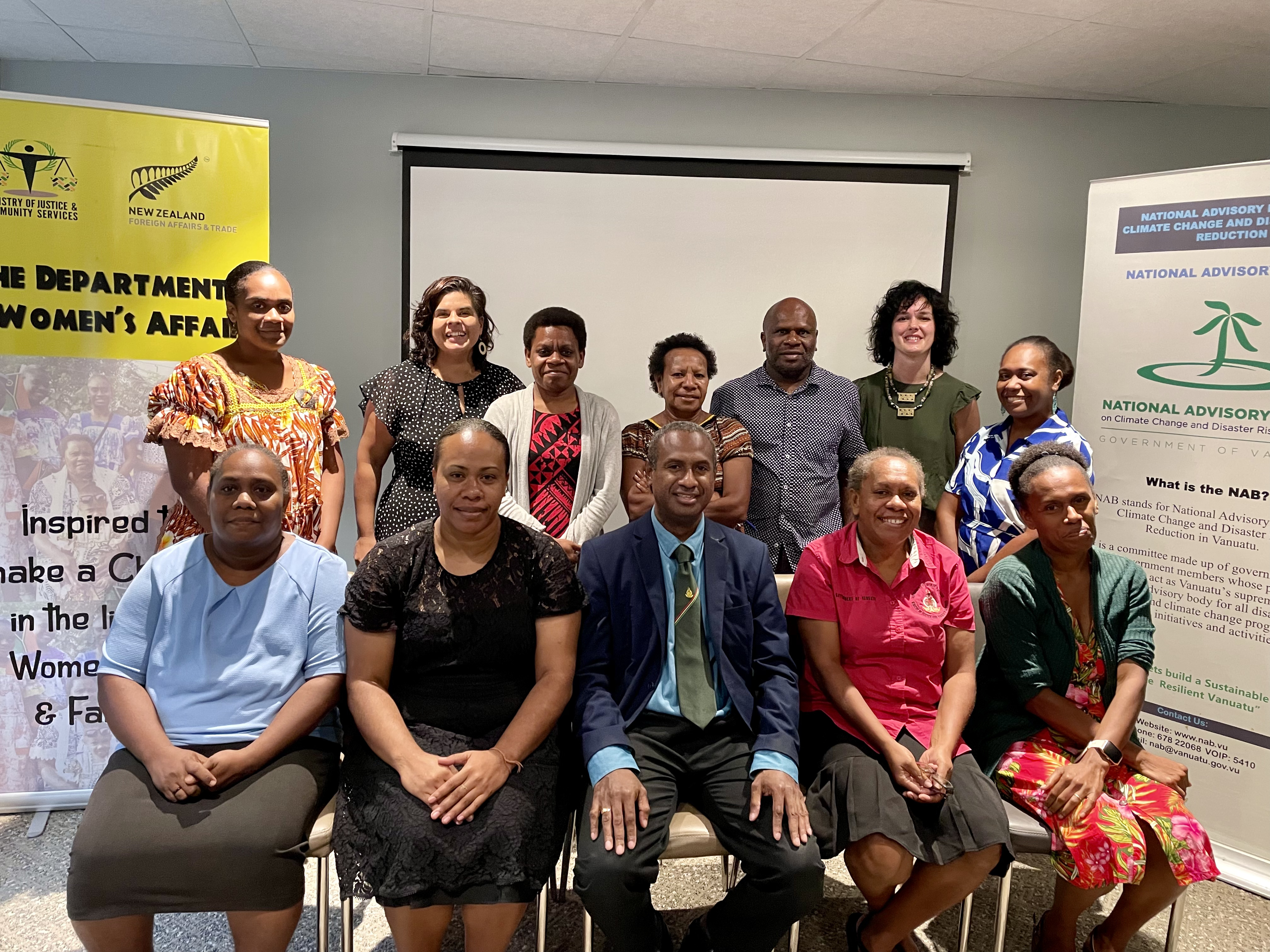
Representatives of Government, civil society, and the community during the Vanuatu’s country reporting on the 5-year enhanced Lima work programme on gender and its gender action plan workshop.
Port Villa, Vanuatu – Vanuatu is advancing in its commitment to make sure its climate action initiatives are gender-inclusive and equitable for all, prioritizing the principle of leaving no one behind.
Vanuatu, a signatory to the United Nations Framework Convention on Climate Change (UNFCCC), has been actively engaged in addressing gender disparities in climate resilience efforts for some time now.
At COP25 in December 2019, parties agreed to a five-year enhanced Lima work programme on gender, and a gender action plan. This is the last year of the enhanced Lima work programme and the country reporting on progress towards implementation of this gender action plan is due on 31 March this year.
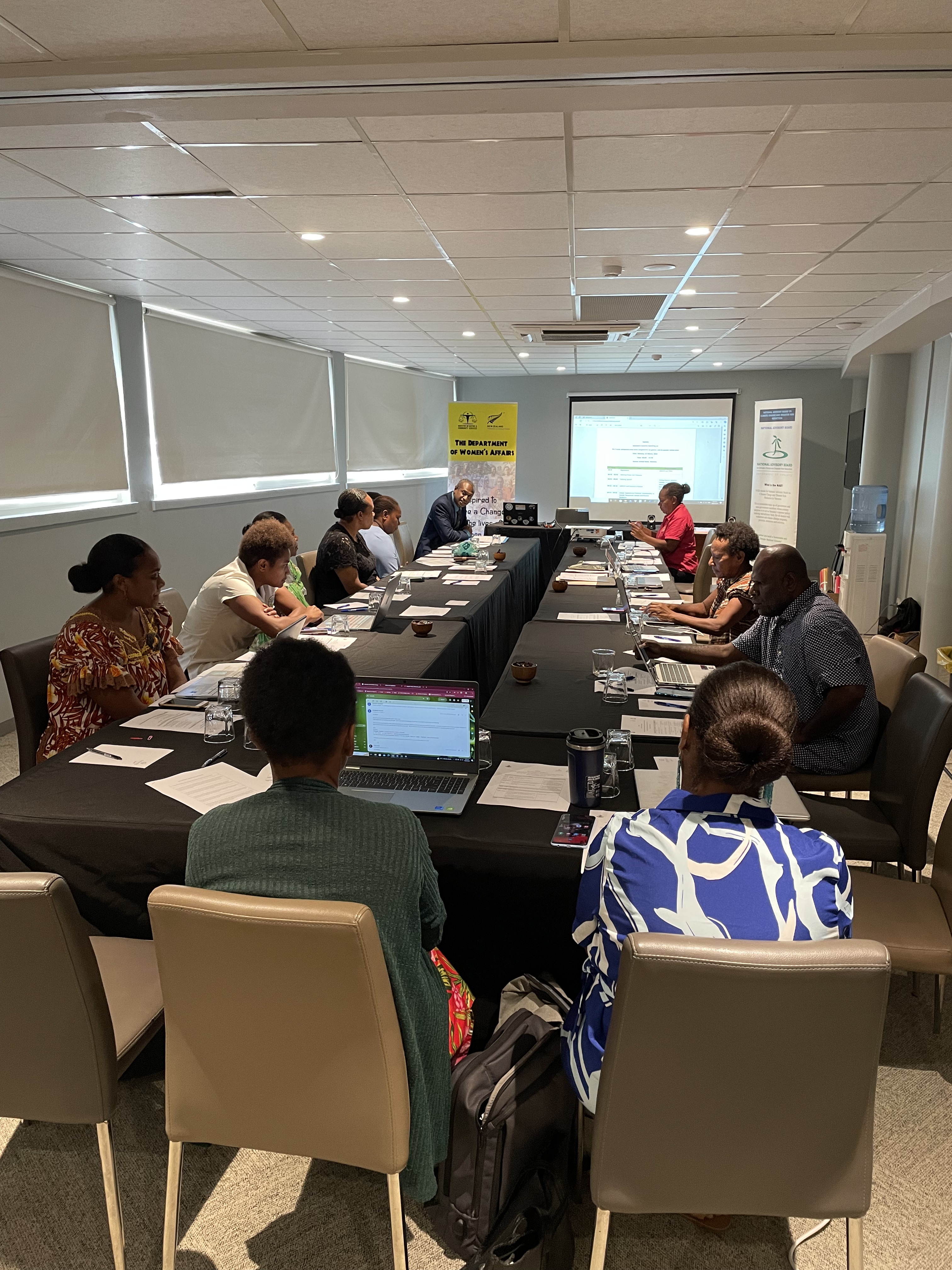
Participants during the Vanuatu’s country reporting on the 5-year enhanced Lima work programme on gender and its gender action plan workshop.
The purpose of country reporting is to identify progress, challenges, gaps and priorities in implementing the gender action plan, and further work should it need to be undertaken. Vanuatu’s inputs will subsequently inform national, regional and global reporting and dialogue in June and November, 2024 on the enhanced Lima work programme and its gender action plan.
This gender action plan, alongside the Convention on the Elimination of All Forms of Discrimination Against Women (CEDAW), Beijing Platform for Action and regional gender equality frameworks provide shared outcomes which the Government of Vanuatu are working towards through the implementation of their National Sustainable Development Plan, National Gender Equality Policy and other sectoral policies and guidelines.
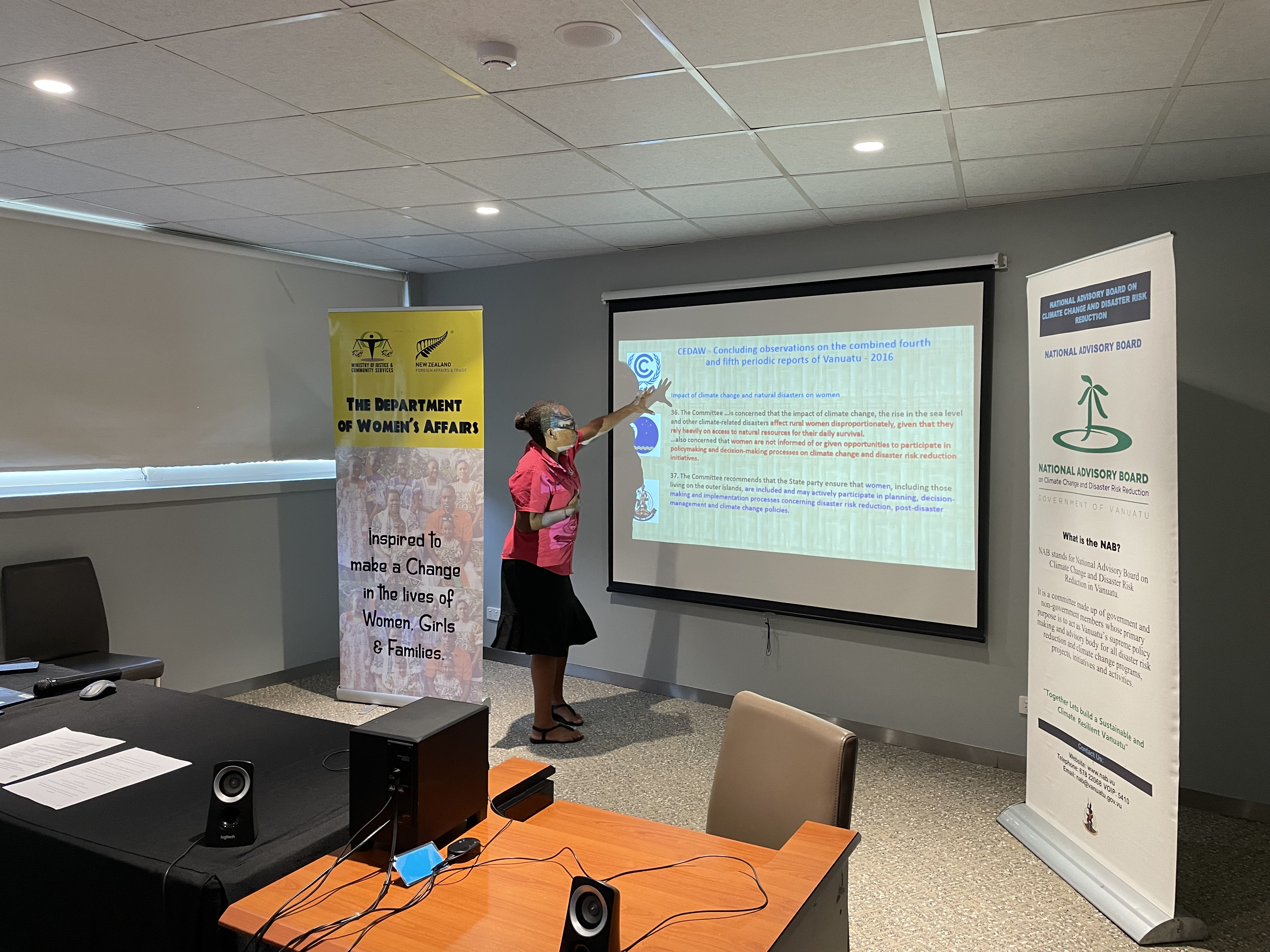
Director Rothina Noka from Department of Women’s Affairs, explaining how Global Commitments on Climate Change and DRR are connected to Regional and National laws and policies.
In this regard, the Ministry of Climate Change Adaptation, Meteorology and Geo-Hazards, Energy, Environment and National Disaster Management and the Department of Women’s Affairs invited partners to a one-day workshop to discuss Vanuatu’s policy commitments, report on progress, share success stories and discuss recommendations to strengthen gender responsive climate and disaster resilience in Vanuatu and globally.
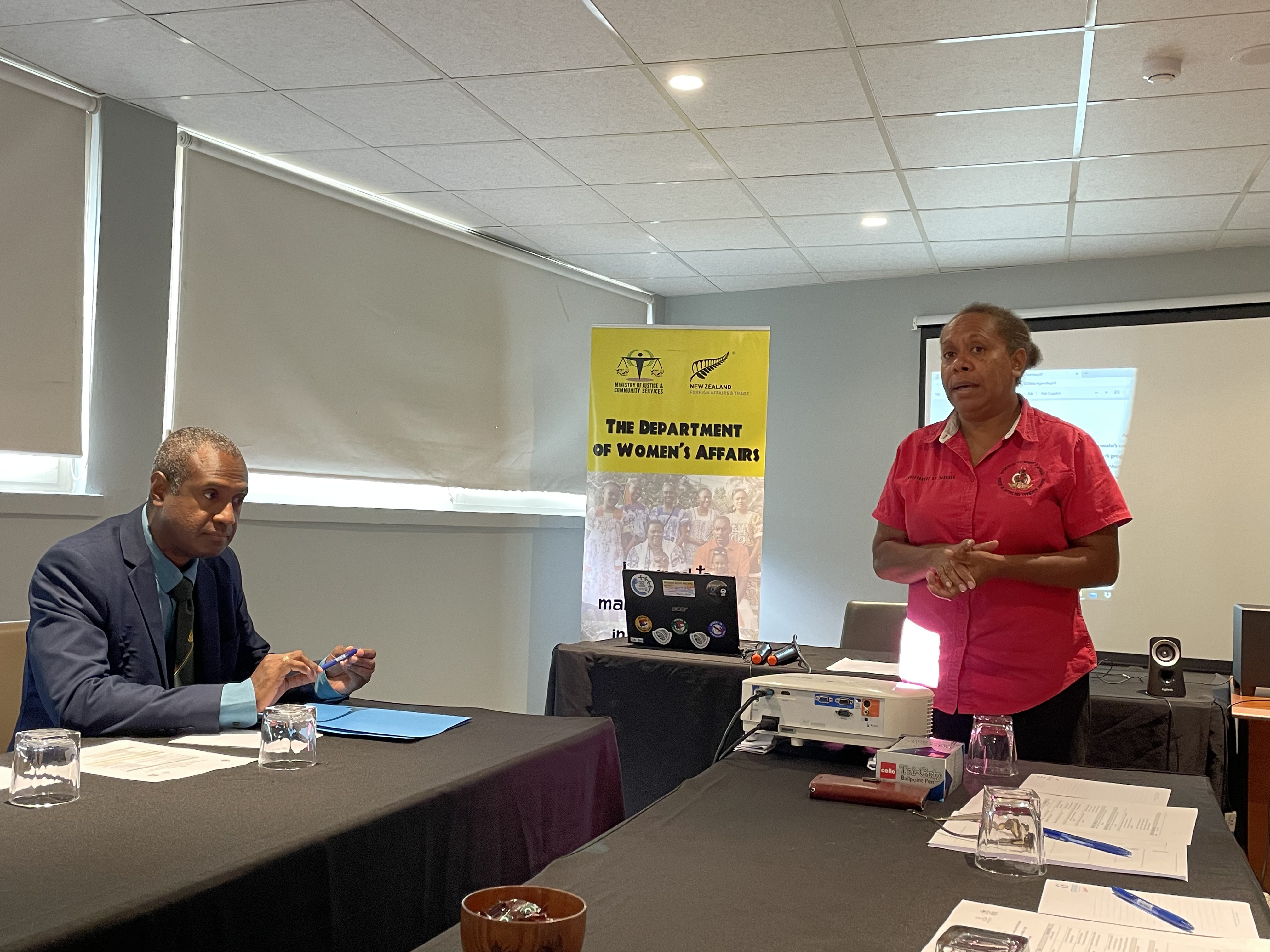
Opening remarks from Director Rothina Noka (Department of Women’s Affairs) and Acting Director General for Climate Change, Mr Abraham Nasak during the first Vanuatu’s country reporting workshop on the 5-year enhanced Lima work programme on gender and its gender action plan.
Ministry of Climate Change Adaptation, Meteorology and Geo-Hazards, Energy, Environment and National Disaster Management and Department of Women’s Affairs, Acting Director General Abraham Nasak said that while undertaking this reporting exercise, it is important to note that Vanuatu’s commitment to gender equality extends beyond international agreements.
“It is a fundamental principle that underpins our National Sustainable Development Plan and the National Gender Equality Policy. By mainstreaming gender considerations into our climate and disaster resilience initiatives, we not only enhance effectiveness but also promote more inclusive and sustainable development outcomes.”
“Addressing gender within climate action is essential. In Vanuatu, women and girls often bear a disproportionate burden of the impacts of climate change. From limited access to resources and decision-making power to increased vulnerability to climate-related disasters, the challenges they confront are multifaceted.”
“Despite this, it is essential to recognize that women are also powerful agents of change. When women are actively involved in decision-making processes and provided with the necessary support and resources, they demonstrate remarkable resilience and innovation. Their involvement leads to more effective and sustainable climate solutions, benefiting not only themselves but their families, communities, and the environment as a whole,” he said.
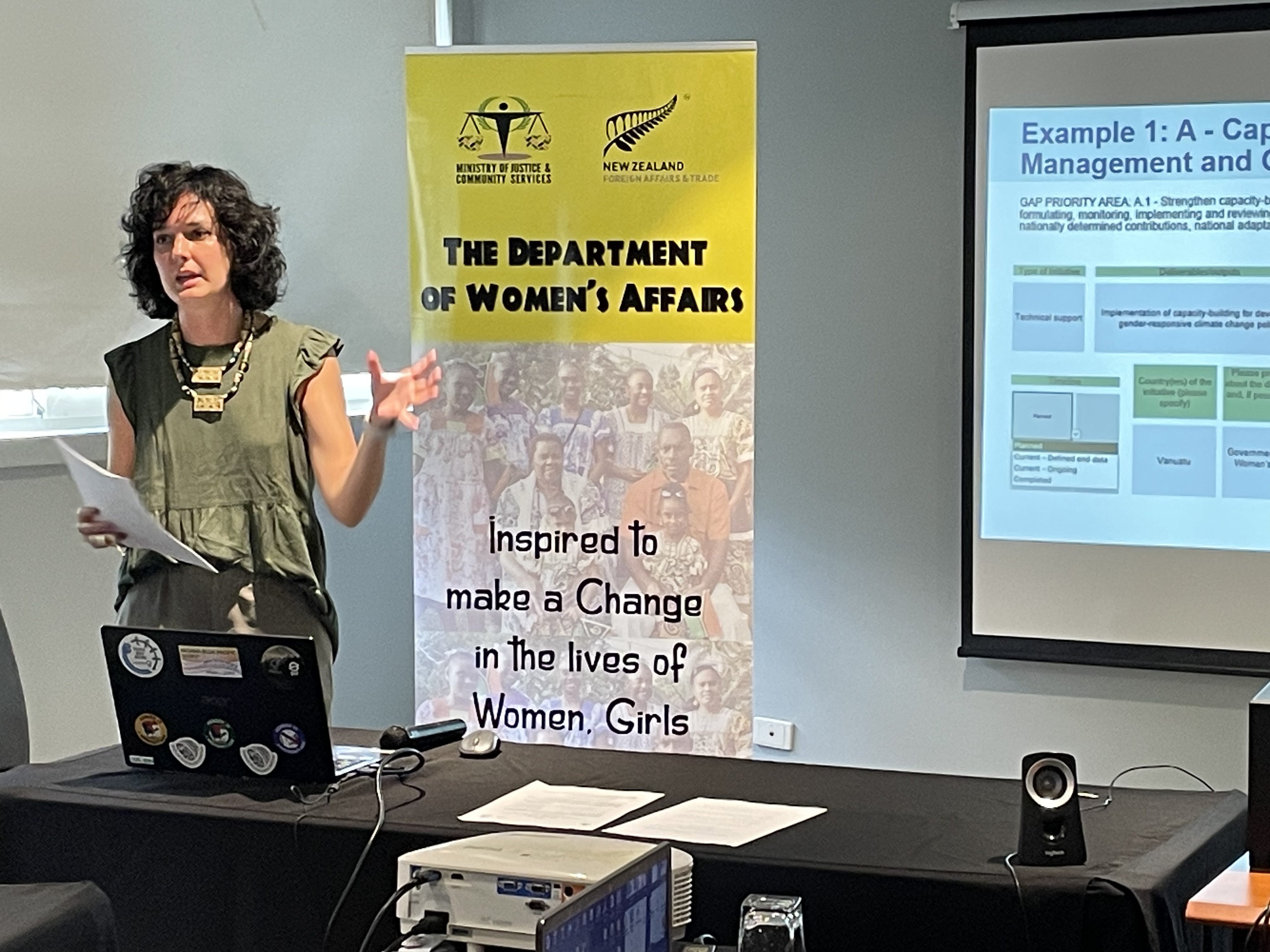
Michela Lugiai, Gender Equality Consultant for VCAP 2 project, provides an overview of UNFCCC Gender Action Plan (GAP) reporting.
UNDP Pacific Office Resilience and Climate Change Team Leader (Officer in Charge), Mohseen Dean, said: “Vanuatu's journey towards gender-responsive climate resilience is a testament to our dedication in achieving sustainable development goals and leaving no one behind.
“Through collaboration and shared commitments, we are empowering women as agents of change, driving towards a future of just, equitable and sustainable development.”
For further media enquiries, please contact:
Ashna Kumar | Communications Associate | UNDP Pacific Office in Fiji | Email: Ashna.kumar@undp.org

 Locations
Locations



